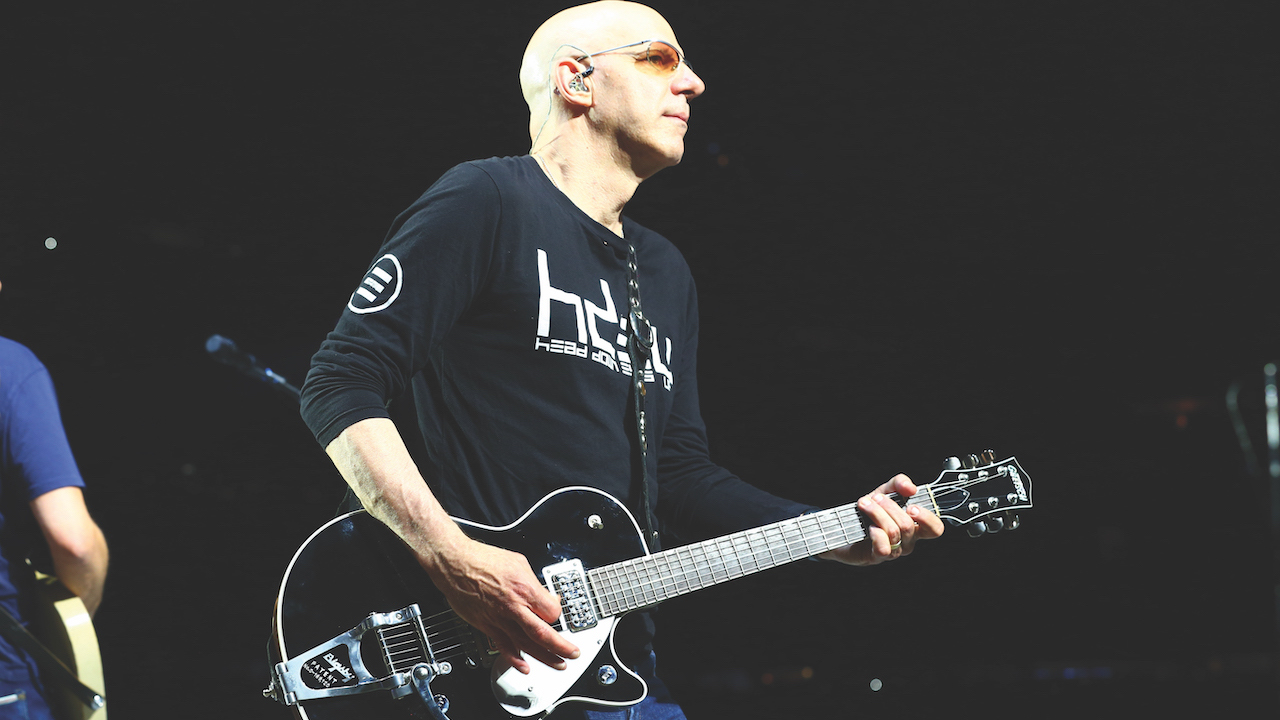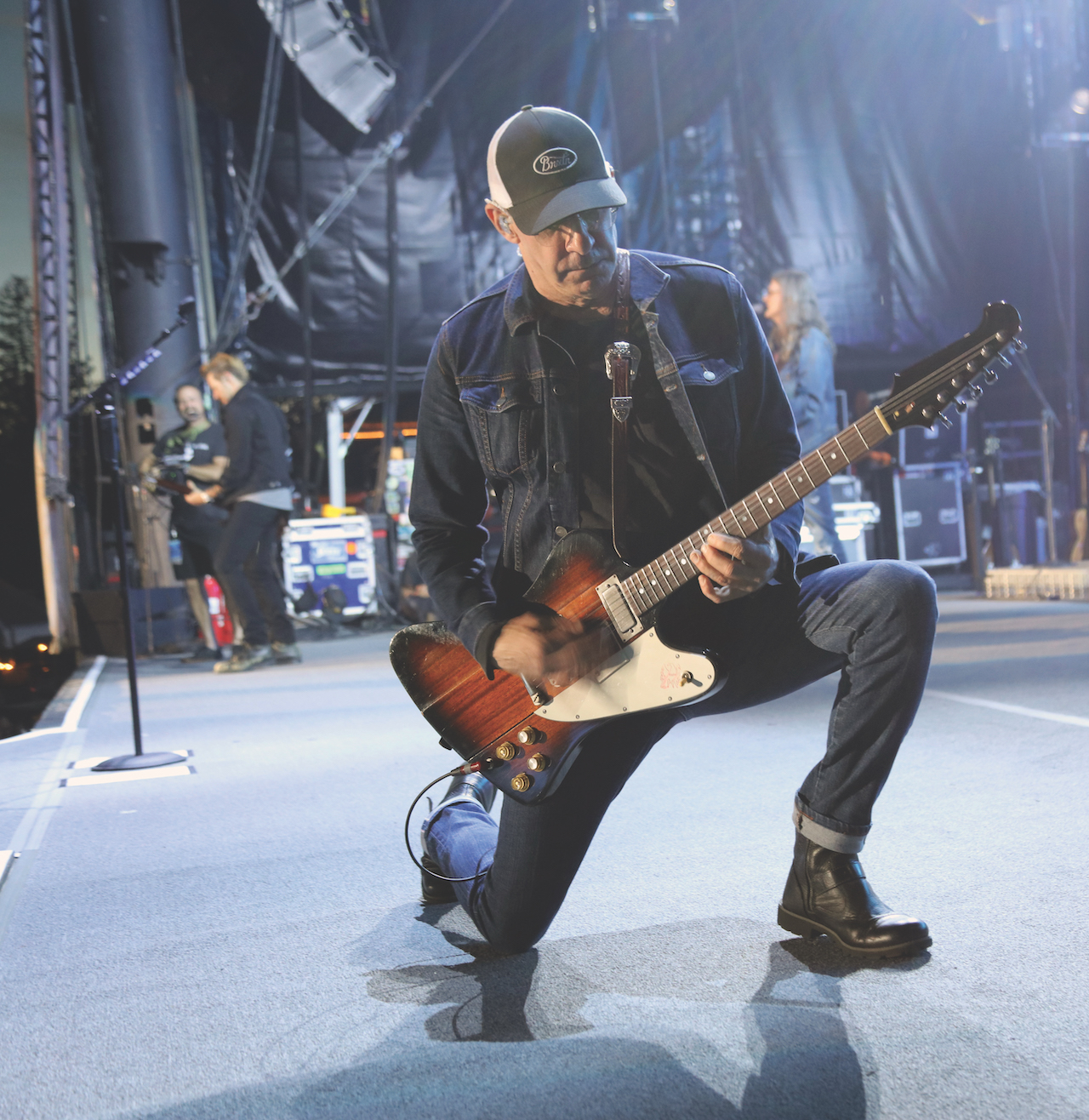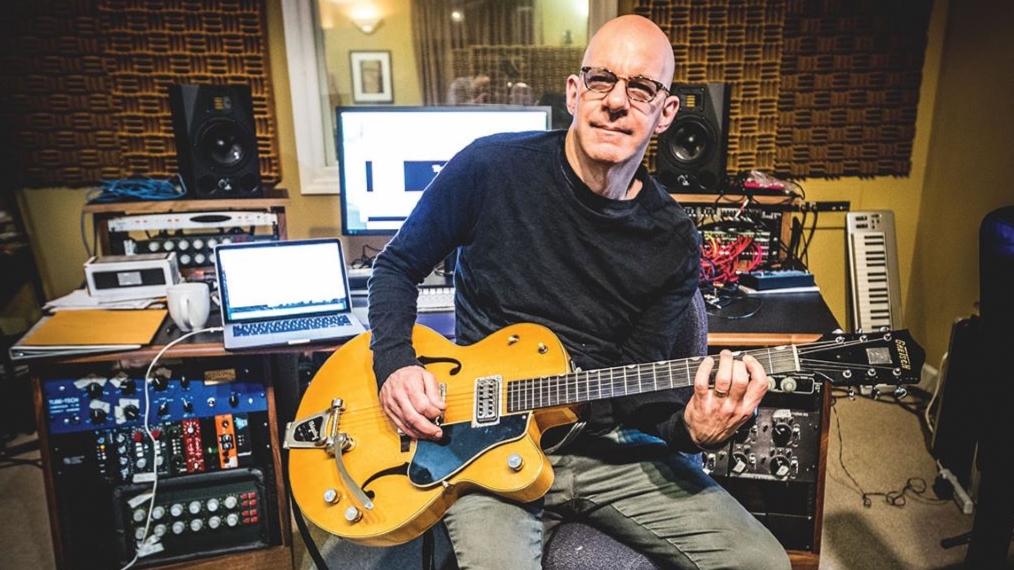“Here’s the truth: if you’re a great rhythm guitar player you’ll always have a gig. They’re hard to find. There’s tons of soloists”: Go-to guitarist for everyone from Willie Nelson to Taylor Swift, Kenny Greenberg shares his top 5 tips for session success

When Kenny Greenberg arrived in Nashville in the mid ’80s, the Cleveland-born guitarist fit right into the country music session scene – because he didn’t fit in.
“I came from a rock and blues background, so I had my own angle going on,” he says. “I infiltrated the country world by bringing a different sound and feel to the records that were being made. I always honored the song, but I had a fiery way of playing that people seemed to like.”
Those people include the likes of Taylor Swift, Brooks & Dunn, Gretchen Wilson, Willie Nelson, Trisha Yearwood, Bob Seger, Kenny Chesney and Amy Grant, among others.
“I’ve been very fortunate to have worked with so many incredible artists,” Greenberg says. “I always say, ‘I’m not the kind of guitar player who can play everything perfectly. I play like me.’ But I think having that little bit of personality has paid off. You can get a lot of guys who sound like each other. I’m not that guy.”
A lot has changed in the music industry since Greenberg began his career. Budgets are tighter, and an increasing number of album projects are being cut in home studios.
“There’s still a lot of work, but you learn to acclimate to the times you’re in,” he says. “I produce, and I do some film and TV stuff. Plus, everybody has a road gig now. I do a fair amount of touring. A lot of times you’re out Thursday through Saturday, and during the week you do sessions.”
Whatever career goals you have in mind, Greenberg’s sage pieces of wisdom are bound to put you on the right track.
All the latest guitar news, interviews, lessons, reviews, deals and more, direct to your inbox!
“Some things take a little explanation,” he says, “but a couple bits are pretty simple. First, don’t be a cookie-cutter guitarist. Be yourself. Own what you are and be the best version of that. And no matter what, don’t be the musician who’s always late. Nobody appreciates that in any business.”

1. When the Singer is Singing, Turn Down
“I recently had this experience with another guitar player. It was kind of shocking, really, because I thought everybody knew this by now. But it’s very simple: When the singer is singing, turn your volume down.
“I admit, I was once an offender. When I first started playing gigs, I was loud and proud all the time. Finally, somebody said, ‘Dude, when I’m singing, turn your guitar down!’ Over time, while playing with other people, I just figured it out. Some guys like to use their volume pedals, but I prefer the knob on my guitar. It’s always right there.
“By the way, this also applies to when another guitar player is soloing. If you want respect from other players, you need to show them respect.”
2. If You Want to Work, Play Rhythm
“Here’s the truth: If you’re a great rhythm guitar player, you’ll always have a gig. Mack McAnally said this a while back, and he was so right. Everybody wants a great rhythm player in their band or in the studio, and they’re hard to find. There’s tons of soloists. You look on YouTube, and that’s all you see. I’m not knocking them, either – they’re amazing. But the guitarist who plays great rhythm is the one who’s going to be working.
“This applies more to the studio than live situations. When you’re playing a gig, you can get away with a lot. But in a studio environment you’re put under the microscope, and if your rhythm playing isn’t right on the money, you’re not going to get called back. It can be a career maker or a career breaker.
“I fully admit, I’m not the best rhythm guitarist out there. My timing moves around a bit. Sometimes I rush things and I need to go back and punch in. But I play with a lot of feel and attitude, and I know how to get in the right groove. If you’re in the pocket with the drummer and it makes the song work, and if you’re playing off the vocals in the right way, then you’re doing your job.”

3. Make Your Solos Conversant
“I think the best solos are when the guitarist is trying to speak through the instrument, just as the singer is doing with their voice. Some of the best players out there carry on a dialog when they’re soloing.
“Derek Trucks always sounds like he’s talking right to you. Jimi Hendrix and B.B. King had that, too. When you’re playing, think, Am I communicating something to the listener? Am I letting somebody in on a feeling without using words? I’m always thinking that when I play.
“Some guys work off the melodies and lyrics to develop themes in their solos. They’ll play a variation of the verses, and they’ll develop a narrative in their solo. I approach a lot of things that way. Other guys play songs within a song. George Harrison was the absolute best at that. Everything he played was memorable. You can’t even think of the song without his solo. It’s like he was talking to you – because he was.”
4. Say Yes to Everything
“If you’re just starting out, don’t be an elitist – say yes to everything that comes your way. Later on, when you’re established, you can be picky about what gigs or sessions you want to say no to.
“There are a lot of advantages to being open-minded. If somebody likes what you play, they might hire you for more things, or they might recommend you to somebody else. That’s how this business works. But musically, you shouldn’t be afraid to take chances. It’s good to put yourself in difficult or uncomfortable situations. Your first impulse might be to say, ‘I’m not the right guy for that.’ But how do you know?
“I remember one time when I played on a John Mellencamp song. He came to Nashville and re-recorded some stuff with a producer named Tony Brown. I played on a song that was in this weird, totally bizarre tuning. I had no clue what was going on, and somebody said, ‘Oh, Kenny, this is the tuning.’ I still didn’t know what to do.

“There was another guitar player on the date, and I said, ‘Why don’t you play it?’ He said, ‘No, I don’t think so.’ So I said, ‘Okay, I’m going to do it,’ and I ended up doing it, but I came up with my own way of playing it. It was really, really cool. I’m not even sure if the song ever came out. I just remember that I was sweating my ass off, but then I thought, God, this is actually really cool.
“There was another time when someone asked me to play a solo direct to the console. That wasn’t how I recorded, but I said, ‘All right, I’ll try it.’ Not only did it work out and sound great, but it’s now become one of the things that I like to do. It was unnerving at first, but I tried it and it sounded great. I could have said no – but I didn’t.”
5. Don’t Spend Too Much Time Screwing Around With Your Gear
“This is true when playing live, but it’s especially important when you’re recording in the studio. Time is money, and you want to be the guy who can come in and get a sound right away. Be able to dial it up with no worries: There’s my sound – boom. Maybe you’ll be asked to adjust it, or a producer or artist will want to try something else. That’s fine. But you should be able to plug in and have a good sound in 15 minutes.
“With sessions that last a couple of hours, you’re expected to dial up a sound and play. Be aware of that and you can avoid getting nasty glares from people. This is true in Nashville, and I’m sure it’s the same wherever records are being made. You want to be the guy nobody has to worry about.”

Joe is a freelance journalist who has, over the past few decades, interviewed hundreds of guitarists for Guitar World, Guitar Player, MusicRadar and Classic Rock. He is also a former editor of Guitar World, contributing writer for Guitar Aficionado and VP of A&R for Island Records. He’s an enthusiastic guitarist, but he’s nowhere near the likes of the people he interviews. Surprisingly, his skills are more suited to the drums. If you need a drummer for your Beatles tribute band, look him up.
